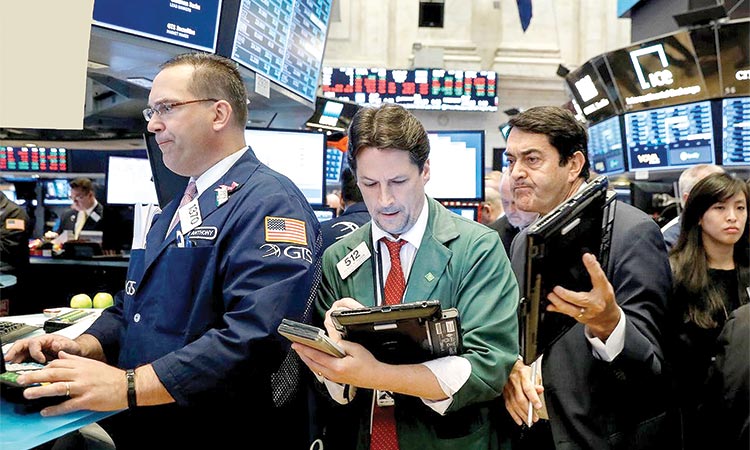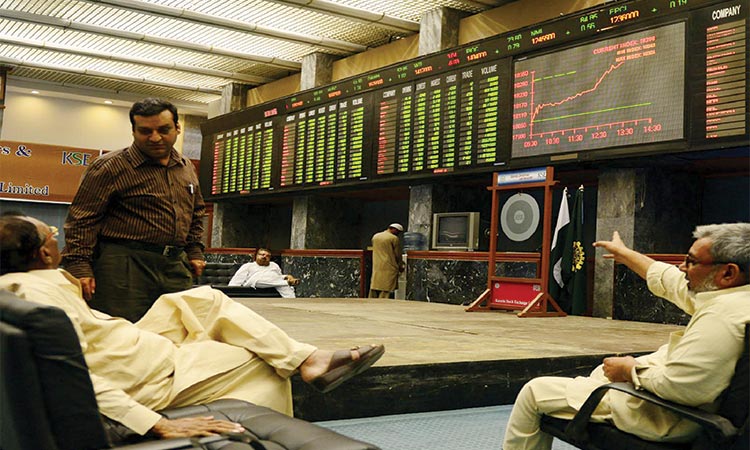Dollar near 15-month low as US inflation fuels rate peak bets

People shop in a supermarket in Manhattan, New York City, US. Reuters
The dollar hovered near a 15-month low on Friday and was set for its biggest weekly decline since November after softening US inflation data fuelled investors’ bets that the Federal Reserve was close to the end of its rate hike cycle.
US producer prices barely rose in June and the annual increase in producer inflation was the smallest in nearly three years, data showed on Thursday, a day after data showed consumer prices rose modestly last month.
“Markets are generally pretty pleasant with the lower inflation data, because lower inflation together with the still resilient labour market supports the narrative of a soft landing in the US economy,” said Carol Kong, currency strategist at Commonwealth Bank Of Australia in Sydney.
“But we still maintain our view that the US will enter a recession later this year because of the impact of past and potentially future interest rate hikes.”
The dollar index, which measures the US currency against six peers, edged 0.06 per cent higher at 99.827, after touching a 15-month low of 99.574 earlier. The index is down 2.4 per cent for the week, its biggest weekly decline in eight months.
Markets are still pricing in a 95 per cent chance of a 25 basis point hike from the Fed later this month, CME’s FedWatch tool showed, but no more for the rest of the year.
Investors have been betting on a turn in the dollar for months, with short positions more than doubling over the month to July 7, according to data from Commodity Futures Trading Commission, although they remain far off the levels in 2021.
Fed officials remain cautious, with Federal Reserve Governor Christopher Waller saying he is not ready to call an all-clear on US inflation and favours more rate rises this year.
Against a weakening dollar, the euro touched a fresh 16-month peak of $1.1243 in Asian hours before flattening at $1.1227.
“(The euro) has taken off on the back of US disinflationary bets and a large unwinding of dollar positions. Our short-term fair value model shows that the pair (euro/dollar) has now entered overvaluation territory,” said Francesco Pesole, FX strategist at ING.
The Swedish crown fell 0.5 per cent against the dollar to 10.2560, moving away from a two-month high hit versus the greenback on Thursday, on data showing Sweden inflation was decelerating at a slower pace than expected. The Swedish currency is still set for its biggest weekly gain since March 2009, up 5.2 per cent.
Consumer prices in Sweden, measured with a fixed interest rate, rose 0.9 per cent in June from the previous month and were up 6.4 per cent from the same month last year. A Reuters poll had predicted inflation at 6.1 per cent.
Elsewhere, the Australian dollar eased 0.3 per cent to $0.6868 after Michele Bullock was appointed head of Australia’s central bank on Friday, becoming its first female governor as it undertakes a sweeping reorganisation.
The Japanese yen weakened 0.25 per cent to 138.41 per dollar and is on course for its best week against the dollar since January.
Meanwhile analysts noted that the cooling of US inflation, fewer Fed hikes and currency appreciation make rate cuts more likely in EM in 2H.”
“The easing of dollar-denominated debt burdens and reduction in the cost of borrowing should be a fillip for economic growth.”
Poland’s inflation in June slowed to 11.5 per cent on an annual basis from 13 per cent in May. This comes amid growing talks of rate cuts in Central and Eastern Europe. The zloty was down 0.1 per cent against the euro.
Russia’s rouble firmed and was on course for its first weekly gain in over two months, edging back past the 90-mark against the dollar on high oil prices and easing pressure from capital outflows.
The South African rand fell 0.3 per cent, catching a breather after a five-day rally, on track for a near-5 per cent gain this week.
Traders awaited Angola’s interest rate decision and Israel’s inflation data later in the day.
Meanwhile, the International Monetary Fund’s executive board approved an immediate $189 million disbursement to Zambia following its first review of a $1.3 billion loan programme. The kwacha was up 1.1 per cent.
Pakistan received $1.2 billion from the IMF as the first tranche of a $3 billion bailout, a day after the global lender approved the package.
Meanwhile, investment group Ashmore noted investors reduced exposure to emerging markets against a uncertain global macroeconomic backdrop, while reporting an $1.8 billion drop in assets under management for the quarter to end-June.
The EM-focused asset manager’s CEO Mark Coombs, however, said “emerging markets continue to perform well, with support from improving fundamentals such as accelerating GDP growth, falling inflation and the potential for rate cuts, as well as the benefit of a weaker US dollar.”







